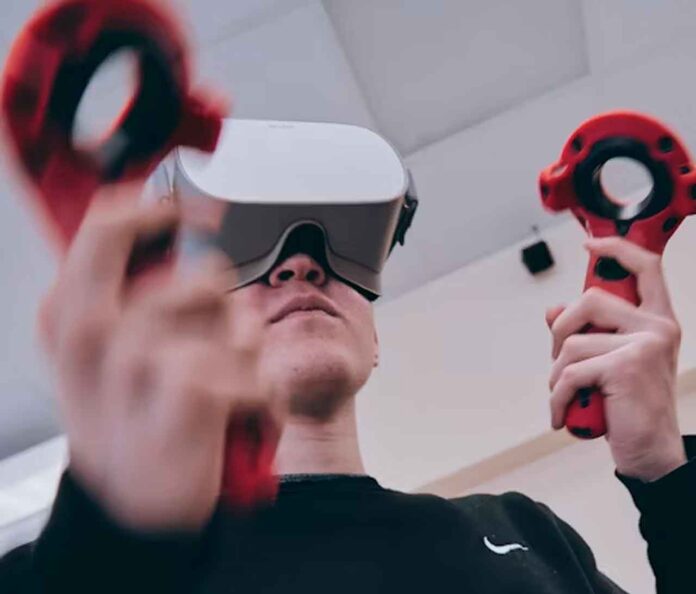The influence of AI on the entertainment sector is already substantial. From its rapid ascent to the forefront of the Hollywood Strike to more gimmicky antics like a news anchor powered by artificial intelligence, it’s all there.
Artificial intelligence (AI) has started to change the game in terms of making and watching entertainment.
A consumer’s entertainment media experience may include movies and TV shows, video streaming services, broadcasters, live sports, conventional publishers, and user-generated content on digital platforms.

The article delves into some innovative advancements in artificial intelligence (AI) that reshape the entertainment business.
1. Predictive AI in Casino Gaming
Technology is at the heart of many significant advancements in casino gambling. Predictive AI is improving the consumer experience by effectively digesting more data and breaking down the patterns and behaviors that bettors exhibit when placing an online wager. Slot players, for example, will have a personalized selection of games to suit them, and predictive AI will recommend game titles depending on their betting amounts or the genre of game they prefer.
You can already observe how AI technology is transforming market-leading gambling websites. Although there is a growing tendency among digital platforms to use this technology on a large scale, when you play at an online casino, you’ll see how they continually adapt to technological advances.
With so much money pouring into AI research and development, casinos are once again adapting—using predictive models to improve the bettor’s user experience. While we used slot machines as an example, predictive AI tools are employed throughout the casino gaming industry, and they will continue to play an important role in how platforms seek to improve and remain competitive.
2. Content Generation Enabled by AI
The application of artificial intelligence to the production of media is one of the most fascinating trends in the entertainment sector. Today, AI algorithms can write scripts, music composition, and even visual art. This invention allows content creators to be more efficient while still expressing originality.
Take, for example, AI’s ability to sift through hit movie scripts and generate fresh ideas that follow the same formula. Businesses like Foxy are using this feature to make content creation easier and more engaging for their customers.
Additionally, AI is improving the capacity to tailor material to specific users. AI allows for the analysis of user data to make personalized recommendations, such as scenes, conversations, or music tracks.
3. Co-Pilot AI Business Agents
Microsoft Co-Pilot is a great example of how artificial intelligence is being applied to certain office vocations and functions. Not only has co-pilot advanced to the point that it can execute menial administrative jobs without difficulty, but recent breakthroughs in 2024 have enabled it to organize and sift massive amounts of data and e-mails significantly more quickly than a human worker.
Stay up to date on the newest AI and tech news, and receive daily actionable insights and guidance directly to your email.
Clearly, there is a human cost to such advanced development, and firms are claiming that this game-changing tool will allow customer care representatives to conduct more particular, human-driven activities. If it can effectively streamline human administrative duties, this type of technology may begin to phase out employment like customer service and administration within the next 10 to fifteen years.
4. Business Media Platform
Employ AI to create instantaneous highlights or pivotal moments from live sports material. With this new method, broadcasters and sports federations can save money on editors without sacrificing IP monetization.
Here, we see the efficacy of meta-tagging in action. The integration of vision, optical character recognition, natural language processing, speech, and generative models will tremendously affect the creation, editing, and distribution of videos.
Consider a basic task that current AI technology can readily complete. A businessman is preparing to run for president, for example. A television news program could use AI to compile the person’s footage over the last 40 years and then use sentiment analysis to classify his opinions on various topics and track their development.
After that, emotional analysis would be used to determine the claims’ validity. If this were to happen, people would have a better idea of his platform if he were elected.
5. The First Games on Artificial Intelligence
It is important to remember that the first use of artificial intelligence happened about 70 years ago while trying to trace its roots in gaming. Arthur Samuel of IBM developed a Checkers program in 1952. This program was designed to analyze and improve its gameplay over time by learning from each action.
In recent years, developers have shifted their attention from visually stunning games to games that encourage player participation. This pattern is most pronounced in EA Sports’ FIFA 2017, which increased player engagement by simulating crowd cheers to boost team spirit.
Game Generative AI
Thanks to generative AI, media creators may have access to a seemingly unlimited supply of dynamic content. The site provides users with fresh and exciting content every time they log on. For example, players of No Man’s Sky and Minecraft, two popular virtual world games, are assured an infinite supply of locales.
Generative AI also helps create more realistic and evolving non-playable characters (NPCs) that evolve, learn, and adapt as you play, which increases the game’s replay value and unpredictability.

In the end!
With the help of AI, the entertainment business is seeing a change. New forms of content creation, immersive experiences, virtual influencers, film production, and personalized recommendations are all rising. These innovations are bringing about a sea change in the content creation, distribution, and consumption processes, opening up new possibilities for innovation, efficiency, and audience involvement on a global scale.







